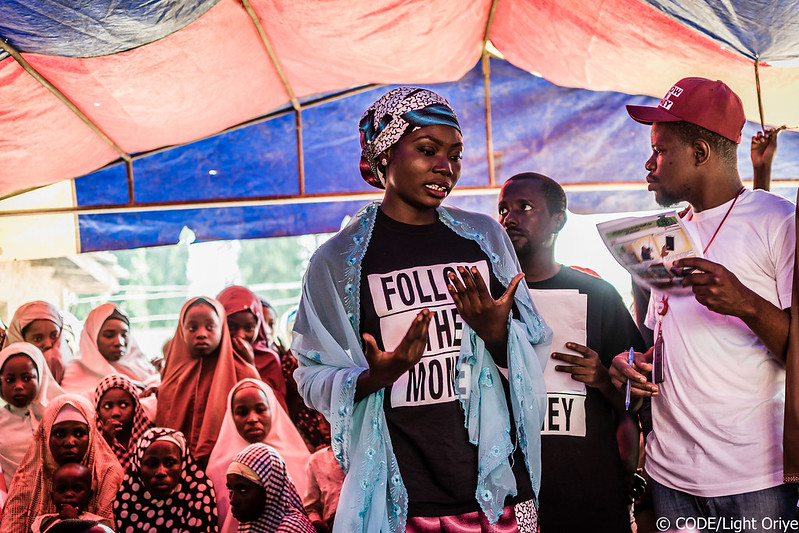POLICY BRIEF: ENDING GENDER-BASED VIOLENCE IN NIGERIA
Project States: FCT, Adamawa, Sokoto, Lagos, Ebonyi, Cross River.

Gender-Based Violence (GBV) is arguably one of the most prevalent human rights violation in the world and is currently a “Shadow Pandemic” – resulting in life threatening consequences on women and girls, negatively impacting their life opportunities. This human rights violation is firmly rooted in gender inequality experienced by women globally. Women and girls are disproportionately affected by GBV.
GBV is manifested through a multitude of actions, including the forced marriage of young girls, trafficking in persons, FGM, rape and attempted rape, purdah, violence directed at individuals with different sexual orientation, sexual violence, verbal abuse and laws and regulations that limit women’s and girls’ rights and access to services in relation to men’s. These practices are not only violations of the human rights of the individuals affected but are also an instrumentalist approach to sustain the status quo and the hierarchy of gender identities. Women living in poverty are particularly vulnerable, as they face high levels of structural violence, including difficulty accessing health and legal services needed to address the effects of interpersonal GBV.
Prevailing Factors that Exacerbate Gender-Based Violence:
- Weak and non-existent policy and legal frameworks, and their implementation thereof;
- Existing discriminatory laws and policies that repress the rights of women;
- Socio-cultural and religious beliefs;
- Effects of sexist social trends and pop culture.
Lack of awareness of the human rights has reduced the insights and urgency needed to combating the persuasive nature of Gender based violence and to achieve that, there has to be:
- Increase in information about sexual and Gender based violence.
- Greater advocacy in the support of legal reforms to discourage GBV.
- More efforts to ensure Enforcement of existing laws on violence.
Policy Asks and Recommendations
- Enactment and Implementation of the Violence Against Persons Prohibition [VAPP] Act.
- Enactment and Implementation of the Child Rights Act.
- Adoption/Development of an Action Plan to End Gender Based Violence.
- Inclusion of gender responsive budgeting in appropriation laws.
- Establishment and funding of Sexual Assault Referral Centres across the Federation.
- Implementation of a robust database of perpetrators.
- Increased sensitization on mainstreaming gender sensitivity and equality.
FollowTheMoney will focus on strengthening the capacity of women and girls in the benefitting communities/wards within the spotlight initiative focal state as advocates and instruments in monitoring the adoption of the State and National Action Plan on eliminating Gender-Based Violence in Nigeria.
This project is supported by the United Nations Spotlight Initiative


